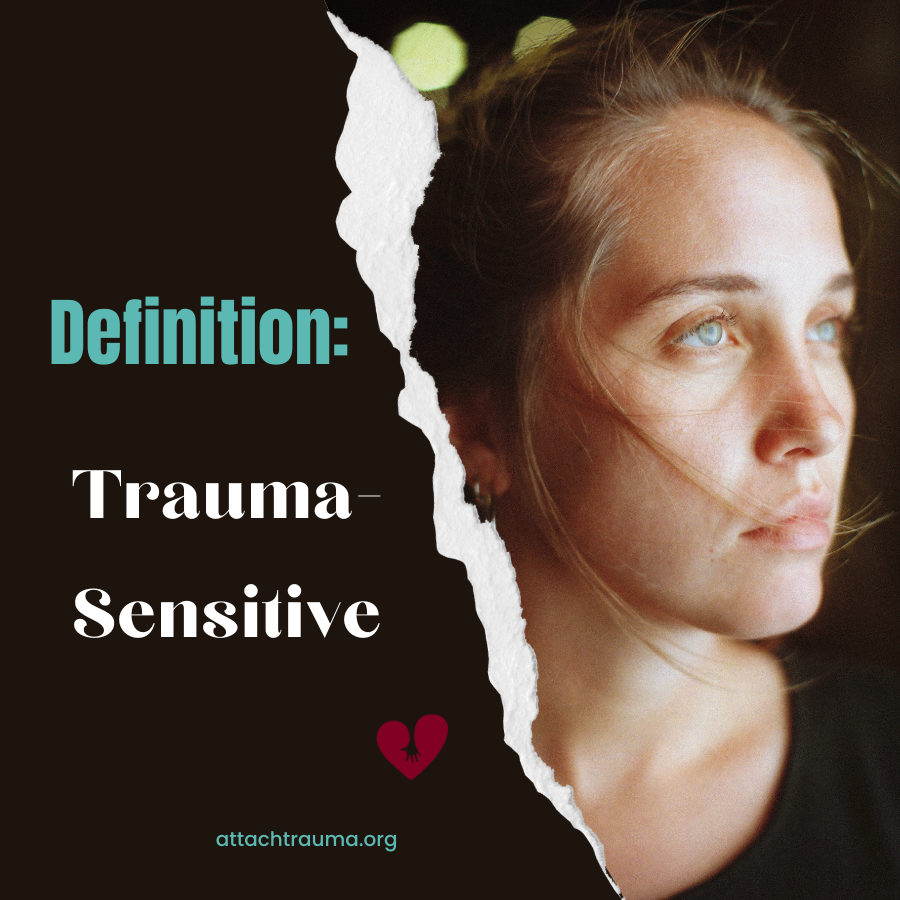
We at the Attachment & Trauma Network (ATN) think it is important to specifically define the terms that are frequently used in the trauma movement. Being a presence in this field since 1995, we have studied and developed the definitions of Trauma-Aware; Trauma-Informed; Trauma-Sensitive and Trauma-Responsive as we use them and believe reflect some important nuances about these terms.
ATN’s Certification Program will be launching in Summer 2024. And as this program grows, will be delineated by these terms.
Trauma-Sensitive
While others place being trauma-sensitive as a step to becoming trauma-informed, ATN sees it differently. Informed by interpersonal neurobiology, we have observed that those seeking to learn about trauma-informed care and the framework for applying trauma-informed approaches take in that information as a cortical activity (using their thinking brain). While learning about trauma-informed care, most invariably struggle with how to respond to trauma-based behaviors that often create higher stress levels in ourselves and others observing these behaviors. Also during the trauma-informed training, the concepts of self-care and community wellness are addressed, but sometimes minimized until we begin applying the work and recognize how challenging it is to daily use what we’ve learned about positive relationships and helping others to co-regulate.
As individuals go deeper into this work, the understanding of trauma-informed strategies become embedded into our own neurobiology where we are better able to see “behavior as communication” and “respond vs. react” to another’s challenging reactions. Through continued study and application this work starts to impact our own limbic system and is reflected back by empathy, and compassion. This is frequently referred to as the “paradigm shift” where we begin to understand that people’s behaviors are often communicating their internal states and are signals about how they’re trying to avoid or resolve the pain of their toxic stress and previous adversities.
At this point, we’re Trauma-Sensitive, responding in a whole-brain way and working toward increased healing-centered solutions. We also have an expanding awareness of how this work applies to people and in situations that we had not yet realized were traumatic. And we have an understanding that trauma-informed practices are healthy practices for all human beings.
Examples of being Trauma-Sensitive:
- Recognizing that you are responding to someone’s dysregulation with your own regulation – you’re giving them your calm.
- Becoming very curious about “why” a person is responding in a certain way and how you can help this person find solutions that are helping them to heal and grow.
- Finding that you have more compassion and empathy for people that you may not have recognized as being impacted by trauma.
- Starting to comprehend how significantly trauma has impacted not only individuals but families, communities, entire societies and feeling compassion and a need for changes at both the individual and systemic levels.


